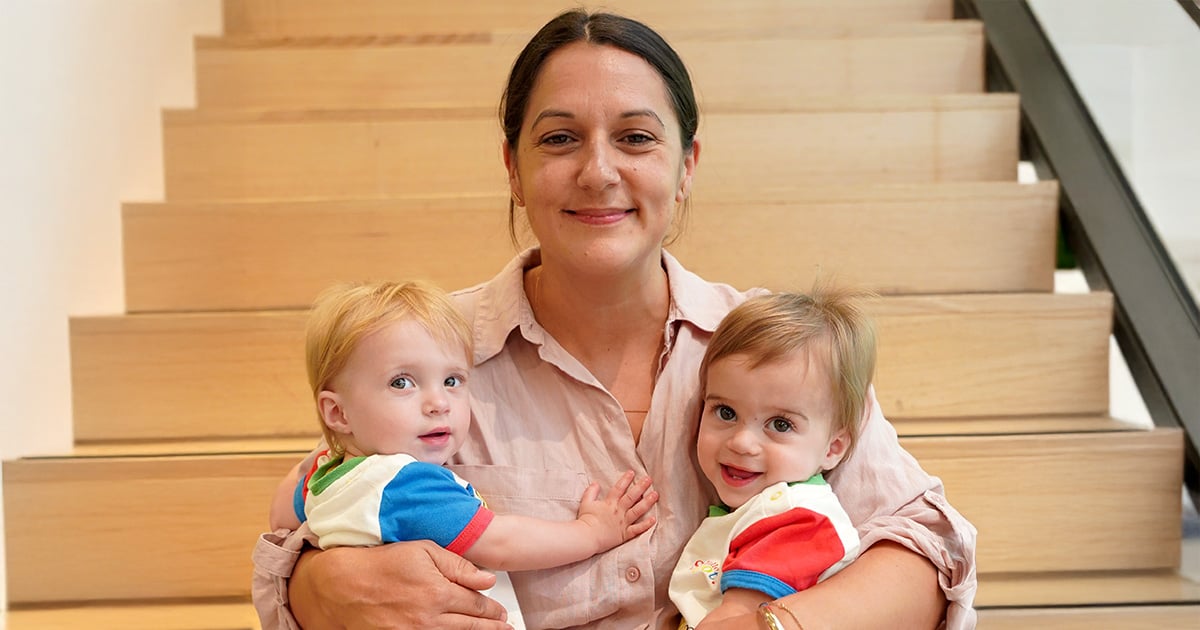An Australian-first study, funded by Perth Children's Hospital Foundation, demonstrating the effectiveness of a new immunisation against respiratory syncytial virus (RSV) for babies found it to be almost 90 per cent effective in reducing hospitalisation rates.
Led by researchers at the Wesfarmers Centre of Vaccines and Infectious Diseases, based at The Kids Research Institute Australia, the REVIVE Study investigated RSV-related hospital admissions following the introduction of WA’s immunisation program providing babies with a long-acting monoclonal antibody called nirsevimab.
Affecting the airways and lungs, RSV is a life-threatening virus responsible for sending 3.6 million children to hospitals worldwide each year. It is especially dangerous for vulnerable young babies at high risk of potentially deadly complications such as severe bronchiolitis and pneumonia.
In 2024, Western Australia was the first Australian State to offer a free RSV immunisation program for all babies born throughout the winter season, providing more than 24,000 doses of nirsevimab throughout April to September last year.
Lead author of the REVIVE Study, Dr Ushma Wadia, said the program was found to be extremely effective, with the immunisation roll-out helping more than 500 babies avoid a hospital admission caused by RSV.
“Working alongside WA Health and Pathwest to evaluate hospitalisation rates at Perth Children’s Hospital, Fiona Stanley Hospital and Joondalup Health Campus has allowed us to become the first place in the southern hemisphere to successfully demonstrate the major impact of RSV immunisation in young babies,” said Dr Wadia.
The data gained from the REVIVE Study aligns with outcomes from research conducted in the northern hemisphere and can now be used as evidence to inform vaccine policy throughout the world, including in lower-income countries where morbidity rates for RSV are at their highest.
The success of WA’s nirsevimab program also contributed to the roll-out of a national, $174.5 million RSV immunisation program now underway for all pregnant women and newborn babies which hopes to keep 10,000 Australian babies out of hospital each year.
New guide for families
Researchers from the STAMP RSV program have developed an online tool designed to help WA families and health-care providers learn the best way to protect babies and young children against RSV.
Designed to help parents understand which RSV vaccines or immunisations they are eligible for as part of Australia’s new RSV Maternal and Infant Immunisation Program, the guidance tool provides users with recommendations based on answers provided to a series of questions, such as stage of pregnancy, the time of year and family background.
The tool then provides information according to criteria set by the WA Department of Health, letting parents know their eligibility for a vaccine given to pregnant women and/or a monoclonal antibody for the baby at or after birth.
Developed in consultation with the STAMP team’s RSV Community Reference Group, it is hoped the new tool will help empower the community to make their own decisions when it comes to providing their baby with the best possible protection against RSV.
Next steps
- In addition to continued monitoring of WA’s RSV immunisation program, the Wesfarmers Centre is leading the evaluation of the national RSV PAEDS-FluCAN program.
- PAEDS-FluCAN, funded by the Commonwealth Department of Health, is a hospital-based surveillance program for patients with RSV at 23 sites throughout Australia.

